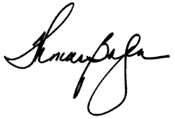2002 Distinguished Graduate Award
LTG Walter F. Ulmer, Jr. '52
Throughout a long and distinguished career of service to the nation, Lieutenant General Walter F. Ulmer Jr., has epitomized the ideals of “Duty, Honor, Country.” As a soldier, commander, visionary, and educator, he has always been known for his straightforward, effective practice of enlightened leadership. This theme in his professional life, coupled with his unwavering courage and integrity, made a far-reaching and enduring impact upon countless soldiers, the Military Academy, the United States Army, and the world of business.
Born in Bangor, Maine, Walter Ulmer graduated from West Point in the Class of 1952. Commissioned a second lieutenant of Armor, he was immediately immersed in the rigors of unit leadership, commanding companies in the 56th Amphibious Tank and Tractor Battalion in Korea, the 6th Tank Battalion, 24th Infantry Division in Japan, and the 325th Airborne Infantry Regiment of the 82nd Airborne Division. During these assignments, the development of practical advice for junior leaders became one of his life-long professional interests.
In 1958, he was assigned to the Department of Military Topography and Graphics at West Point, and, following that tour, he attended the Command and General Staff College. After graduation he deployed to Vietnam, serving with the U.S. Military Assistance Command and as senior advisor to a Vietnamese Infantry regiment. Upon his return to the United States, he held high-level staff positions and commanded the 1st Squadron, 17th Cavalry, 82nd Airborne Division from 1967 to 1968.
General Ulmer then attended the Army War College and was subsequently selected for duty on its faculty. There, he directed a comprehensive and seminal study of leadership within the Army, profoundly influencing the way its techniques were inculcated throughout the Army of the 1970s.
In 1972, then-Colonel Ulmer returned to Vietnam, where he was Chief, Combat Assistance Team 70, during 62 days of intense combat in the Battle and Siege of An Loc. For its extraordinary heroism against a North Vietnamese force greatly outnumbering the Army Republic of Vietnam defenders, Combat Assistance Team 70 was awarded the Presidential Unit Citation. The citation documents the team’s pivotal role in turning back the North Vietnamese Army’s massive surprise offensive of 1972. During the fighting, Ulmer and his team coolly coordinated vital operations while An Loc was pounded day and night by the war’s heaviest and most sustained artillery and tank assaults. The team’s actions helped to save Saigon for another three years, assuring the safe withdrawal of the remaining U.S. combat forces in Vietnam, and assisting in making possible the January 1973 peace agreement and release of American prisoners of war.
In 1973, General Ulmer completed a master’s degree in Regional Planning from Pennsylvania State University. Subsequently, he was commander of the 194th Armor Brigade and, then, Deputy Commander, U.S. Army Armor Center, Fort Knox.
In 1975, Brigadier General Ulmer returned to West Point as the 56th Commandant of Cadets. During especially challenging times at West Point, he emphasized the importance of command presence and increased the interaction between cadets and senior leaders at the Academy.
General Ulmer’s astute and inspiring leadership was equally effective during his command of the 3rd Armored Division in Germany and, later, during his service as Commanding General, III Corps, Fort Hood, Texas. Following promotion to Lieutenant General, he commanded III Corps from 1982 to 1985, receiving national attention as he implemented lessons learned during his three decades of leadership study and experience. General Ulmer’s straightforward approach to command and clear sense of purpose prepared the corps for a wide range of contingencies and positively influenced the command climate elsewhere in the Army.
In 1985, General Ulmer retired after thirty-three years of distinguished military service. His awards and decorations include the Silver Star with Oak Leaf Cluster, the Distinguished Service Medal, the Bronze Star with Oak Leaf Cluster, the Air Medal with “V” Device, and decorations awarded by the Republic of Korea, the Republic of Vietnam, and the Federal Republic of Germany.
General Ulmer has carried his life-long study of leadership into the world of business, successfully bridging the gap between the military and the academic and corporate worlds. For example, from 1985 to 1995 he served as President and Chief Executive Officer of the Center for Creative Leadership and presided over the dramatic expansion of that nonprofit organization. It grew into an internationally recognized center of excellence, rated by national business publications as the leader in executive development.
This year, the U.S. Army War College and Dickinson College announced their choice of General Ulmer to serve as the General of the Army Omar M. Bradley Chair of Strategic Leadership, a position jointly established by the two institutions. In recent years, General Ulmer has also remained engaged with West Point and its graduates. He has been a member of the Board of Trustees of the Association of Graduates and repeatedly contributed his time and expertise to a variety of West Point Society activities.
Through a lifetime of service to West Point, the Army, and the nation, Walter Ulmer has immeasurably advanced the understanding of leadership; exemplified the ideal of courageous, selfless service; and burnished the image of West Point. It is with great pride that the Association of Graduates of the United States Military Academy presents the Distinguished Graduate Award for 2002 to Lieutenant General Walter F. Ulmer, Jr., USMA Class of 1952.

THOMAS B. DYER
Chairman and CEO